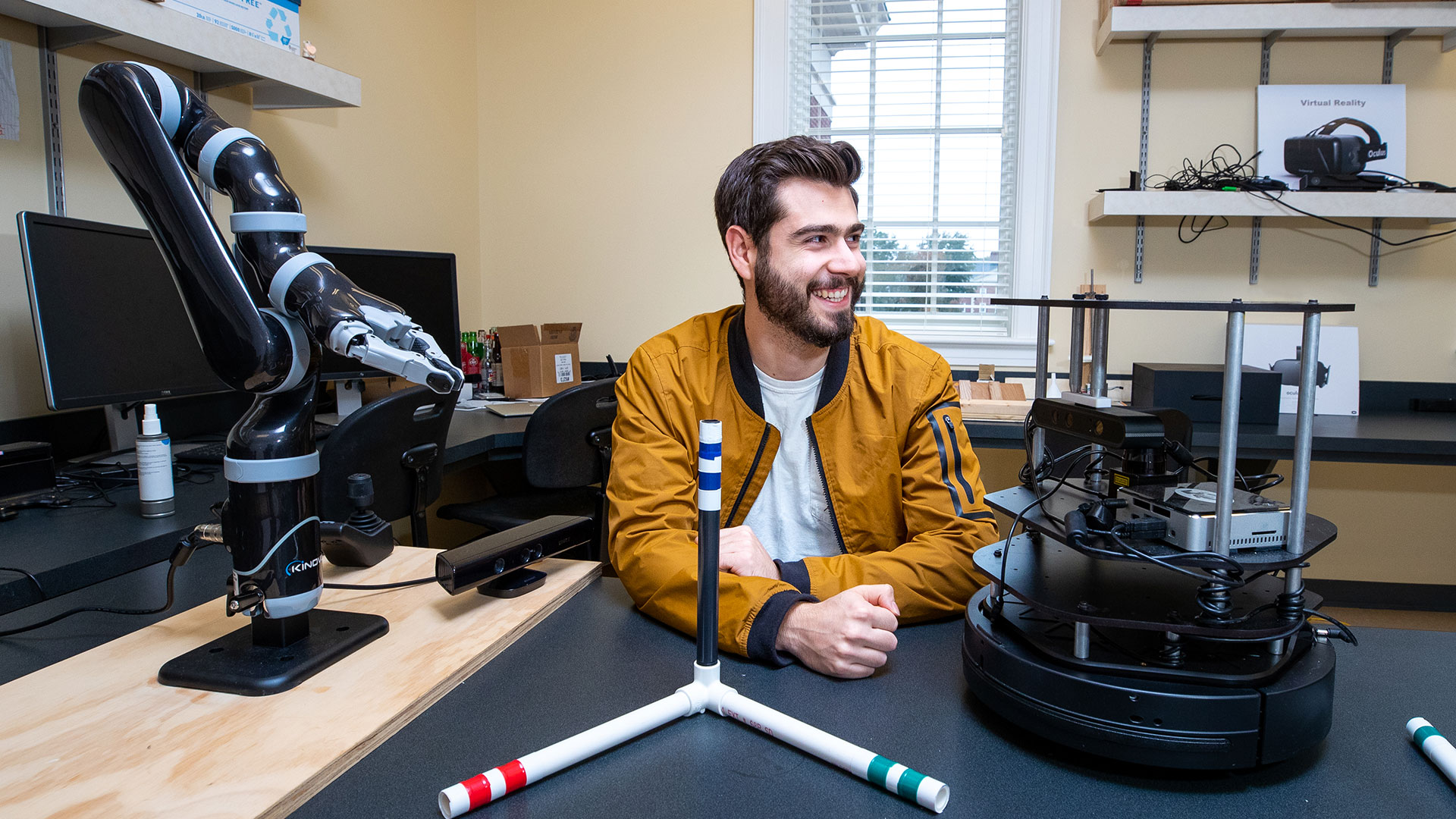Applied Physics and Computer Science

Program at a Glance
Master of Science
College(s)/School(s)
College of Natural and Behavioral SciencesDepartment(s)
School of Engineering and ComputingIn our applied physics and computer science masters program, you can choose from concentrations in applied physics, computer science, or computer systems engineering and instrumentation. While studying you can perform research in areas including nuclear physics, astrophysics, robotics, sensor networking, artificial intelligence and multi-agent systems. The program's flexibility enables students to prepare either for PhD programs or work in industry and is ideal for those interested in careers at the intersection of physics and computing, including fields like scientific research, data analysis, computational modeling, and software development.
Program Requirements
M.S.-APCS applicants select a concentration from one of the following:
Core (9 credits)
- CPSC 501 - Software System Design and Implementation
- CPSC 502 - Communications I (Computer Networks)
- CPSC 510 - Artificial Intelligence I
Concentration (12 credits)
Select any four CPSC or PCSE courses from the M.S. in Applied Physics and Computer Science program (at least one must be 600 level). The courses chosen must be approved by the Graduate Program Coordinator.
NOTE: If PCSE 579 is successfully completed three times, it is treated as if the student completed a three-credit course and will be applied as such to the graduation requirements.
Thesis (9 credits)
- PCSE 699 - Thesis Research
Non-Thesis (12 credits)
12 additional credits (at the 500 or 600 level) from courses with a CPSC, PCSE, or PHYS prefix
Core (9 credits)
- PHYS 521 Computer Architecture
- CPSC 501 Software System Design and Implementation
- CPSC 502 Communications I (Computer Networks)
Concentration (12 credits)
Select four courses from the M.S. in Applied Physics and Computer Science program (at least one must be 600-level). The courses must reflect the hardware and software nature of this concentration. The courses chosen must be approved by the Graduate Program Coordinator.
NOTE: If PCSE 579 is successfully completed three times, it is treated as if the student completed a three-credit course and will be applied as such to the graduation requirements.
Thesis (9 credits)
- PCSE 699 - Thesis Research
Non-Thesis (12 credits)
12 additional credits (at the 500 or 600 level) from courses with a CPSC, PCSE, or PHYS prefix
Core (9 credits)
- PHYS 501 - Models of Dynamical Systems
- PHYS 504 - Electromagnetic Theory
- Select one:
- PHYS 502 - Quantum Physics
- PHYS 506 - Thermodynamics & Statistical Physics
Concentration (12 credits)
Select any four PHYS or PCSE courses from the M.S. in Physics and Computer Science program, not including any course taken to fulfill the core courses requirement. CPSC 501 is also an acceptable choice. The courses chosen must be approved by the Graduate Program Coordinator.
NOTE: If PCSE 579 is successfully completed three times, it is treated as if the student completed a three-credit course and will be applied as such to the graduation requirements.
Thesis (9 credits)
- PCSE 699 - Thesis Research
Non-Thesis (12 credits)
12 additional credits (at the 500 or 600 level) from courses with a CPSC, PCSE, or PHYS prefix
Career Options
- Computational Physicist
- Data Scientist
- Software Developer
- Quantitative Analyst (Quant)
- Research Scientist